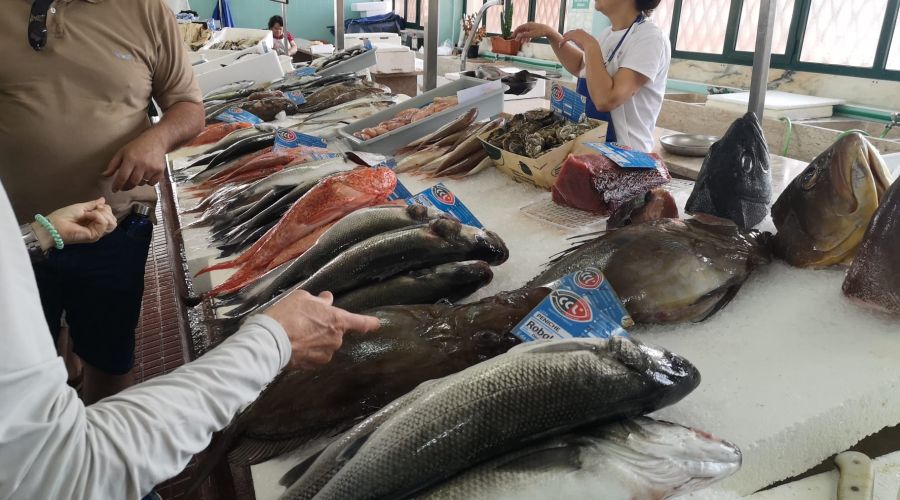Business trip report, Portugal, Kašpar J. et al.

European catfish as (not only) a Portuguese problem
On 01-06-06 we visited Instituto Politéctico de Santarém in Portugal to expand the possibilities of cooperation, the main objective of which is to help our colleagues from southwestern Europe with the problem of eradication of the large catfish (Silurus glanis). This species, which is not native to Portugal, is the top freshwater predator in this country and has completely taken over its natural habitat in some parts of Portugal, causing considerable disturbance to native species.
Portugal, as the country with the highest fish consumption in the EU, has little experience of processing and distributing it, mainly because people avoid it and there is no demand for it on the market. There is thus no real economic motivation for more massive catches, which can only be carried out by licensed companies. They are mainly confronted with the problem of humane killing and refrigeration in a combination that would ensure the preservation of the high quality of the muscle, which has a significantly lower fat content than in the Czech Republic.
In addition to a visit to an educational facility focused on invasive fish species and the promotion of a stable ecosystem (https://www.fozdozezere.pt/index.php?sec=part4), we had the opportunity to have a professional discussion with the manager of one of the sections of a large national system for the intake and distribution of sea fish (https://www.docapesca.pt/), and with whom we agreed on further cooperation, especially in the possibilities of transferring their very sophisticated system of recording and quality control to the conditions of Czech Republic.
Another very interesting benefit was the 2-day company of Robert Hughes (https://www.researchgate.net/profile/Robert-Hughes-34), an excellent expert on fish ecosystems, with whom we discussed the comparison of US and European conditions and the link between fish consumption and freshwater aquaculture.
The greatest source of interesting information, however, were our colleagues from Escola Superior Agrária (part of IPS) who gave us a detailed presentation on both the legislative and practical parts of the issue and the steps they have taken towards the desired changes. We are still processing all the experiences and outputs from this trip and discussing further possibilities of cooperation on the topic with our colleagues from Institute of Hydrobiology in České Budějovice.
This business trip was supported by the Erasmus+ programme.
